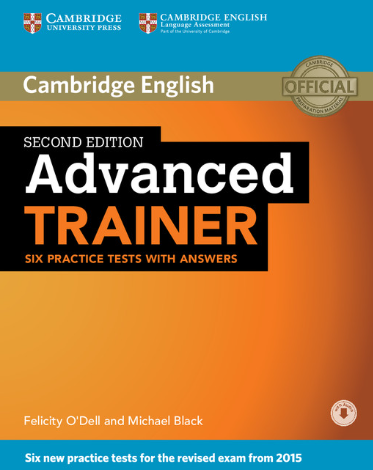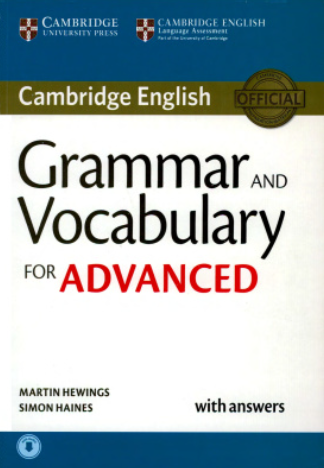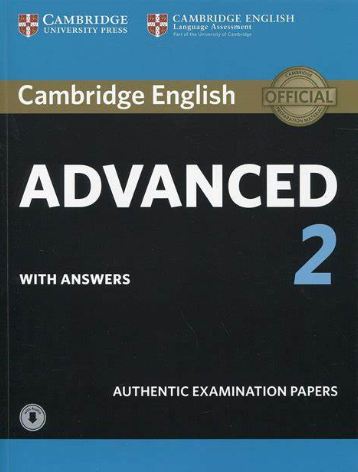Cambridge English exam tips – B2 First, C1 Advanced, C2 Proficiency

Based on my observations and 20 years experience helping students prepare for the Cambridge English exams, it’s the writing paper that many candidates struggle with the most. In fact, I would say that in about 80% of the results statements I see from students who have taken the exams, the writing paper is the lowest score of all, and that can make a big difference. It can be the difference between a pass and a fail, or it could be the difference between an A and a B or a B and a C.
However, it’s not that difficult to get a few extra marks just by avoiding some of the most common mistakes that students make. So, the following are the top 10 most common mistakes that students make in the writing paper of the Cambridge English exams, whether it’s the B2 first C1 Advanced or C2 proficiency
10: Bad Punctuation

This is quite a common mistake, but you may be a little surprised that it’s not further up the list. I’ve put it at number 10 because there is no marking criterion which specifically evaluates punctuation. It’s very useful when writing any composition for the Cambridge English exams to keep in mind the marking criteria that the examiners use, which is as follows:
- content
- communicative achievement
- organization
- language
Punctuation is evaluated in the organization criterion because bad punctuation can really affect the flow of the text and it can be quite difficult to read a composition which is badly punctuated. What I’m really referring to here is the use of the comma because in most texts you don’t need to use a lot of different punctuation. See this video on how to use the comma in English writing for help with that.
9 Not Linking Ideas

When correcting essays, I often see paragraphs of seven or eight very short, basic sentences, without any no linking of ideas, just one sentence with one idea, then another idea, then another idea. You can use basic linkers like and, but and because if they’re appropriate, or you can use more advanced cohesive devices like furthermore, in addition however, nonetheless, nevertheless and so on. It’s also a good idea to use relative clauses (either defining or non-defining relative clauses) to link ideas rather than lots of short sentences. In my online grammar course I go into a lot of detail on clauses as it’s one of the one of the modules.
8 Including Irrelevant Content

This is related to the content criterion, and it’s very important to only do the task which is set and do not include any extra information that is not specifically asked for in the task. In the instructions to the task, Cambridge offer a guide to the word length that you should use for the composition: this is only a guide. You should get quite close to that word length, but it’s not a strict limit. However, if you write too many words it’s very possible that you have included some irrelevant content and you will be penalised for that, so be careful. Pay attention to the task and do not include any irrelevant content.
7 Not Completing the Task

This is a very common mistake. Many exam candidates don’t pay enough attention to the task, and they don’t do everything that is asked for in the task. Often there are many aspects to the task as you can see from this example:

I recommend you underline the different aspects of the task because if you’re not paying attention there is a danger that you won’t really complete the task, and the examiners will consider that the target reader is not fully informed. So, it’s a balance between completing the task (doing everything that is asked of you), but not doing too much and not including irrelevant content. If you can make sure the target reader is fully informed and you haven’t included any irrelevant content, you should get five out of five for the content criterion.
6 Not Using the Conventions of the Task

What do I mean by the conventions of the task? Well, if you’re writing an essay, for example, you should include an introductory paragraph, two or three main body paragraphs and a conclusion paragraph. If you’re writing a letter, you should start the letter in an appropriate way and end the letter in an appropriate way. If you’re writing a report or a proposal, you should have a title and sub-headings for each section – those are the conventions of report writing. If you are writing an article, the style should be quite engaging and the target reader should not feel like they are reading an essay. There should be a clear difference between the different tasks. There are different styles of writing, and that should be represented. In my online Cambridge exam preparation courses, I go into a lot of detail on how to do that, but often it is just common sense: If you read articles in your own language, you should know how to write an article. If you read reviews, you should know how to write a review, and so on.
5 Using an Inappropriate Register

I see this a lot. Exam candidates often don’t use the appropriate register, ie. the level of formality for the task. For an essay, it’s always the same, you should use a neutral to a formal register. For the part two tasks, it will always depend on the target reader. If you have to write a letter to an institution or somebody you don’t know, you should use quite a formal register, but if you’re writing a letter to a friend, of course you should use an informal register. That’s quite obvious and commonsensical, but sometimes it’s not that clear. If you have to write an article for a magazine, the register you use will depend on the type of magazine you’re writing an article for. You must identify the register that you need to use and be consistent throughout your composition. A common mistake I see a lot is when a student uses some really formal vocabulary in one sentence and then quite a colloquial expression in another sentence. Again, you will be penalised for that because you must be consistent with a register throughout
4 Not Using a Wide Range of Vocabulary

We are talking about exams here, and you need to be trying to demonstrate your level and show off the vocabulary you know, so try to avoid repetition. Sometimes you need to repeat vocabulary as it may be impossible to find a synonym, but in general you should try not to repeat yourself. Also, if you use an adjective, and you feel it’s quite a basic adjective, spend a few seconds trying to come up with a more advanced synonym. You do want to try to impress the examiners, that is part of what taking an exam is, so try to come up with more impressive, more sophisticated vocabulary. Of course, sometimes, you’ll need to use basic vocabulary and that’s okay: you need to use a mix. But, in order to get five out of five in the language criterion, the examiners are looking for some less common lexis used in the composition, but it must be appropriate. Just throwing in lots of really advanced words and expressions which are not really appropriate for the the text or for the context is not what the examiners are looking for. So, yes try to come up with a wide range of advanced vocabulary, but it must be appropriate and fit with the register.
3 Not Using a Wide Range of Grammatical Structures

In the language criteria, the examiners look at the grammar and the vocabulary you use and a big mistake that candidates often make is using very limited grammar. You need to demonstrate how much grammar you know and to be able to use it appropriately in the right context to express your ideas effectively. So, think while you’re writing a sentence: “Could I express this idea using some advanced structures?” Maybe I could use inversion, or maybe I could use a cleft sentence, or maybe I could use a conditional.” You don’t need to include every advanced grammatical structure you know in one composition, but just think about how you can make a sentence a little bit more sophisticated and advanced. So, keep the grammar in mind whenyou’re writing your your composition
2 Not Checking for Mistakes

When you finish writing, I highly recommend you give yourself a few minutesto check your composition and correct the silly little mistakes that almost everybody makes. Manage your time well and give yourself a few minutes correct some of those really basic mistakes.
1 A Lack of Planning

The most common mistake that I’ve observed students make from my 20 years experience helping students prepare for the examis a lack of planning. A lack of planning before you start writing your composition. This is number one because I know that most of you – most students who who take the the exam – don’t plan your writings before you start, usually because you’re worried about the time constraints.

You should plan what type of vocabulary you want to use, what grammatical structures to use, the organization of the text, the content you’re going to include and the way you’ll link ideas. It is really much easier and quicker to write the text if you dedicate a few minutes before you start writing. In my online preparation courses, I actually recommend that you spend about 15 minutes of the 45 minutes you have in total (40 minutes for the B2first) planning your composition before you even start writing it. I know very few students do that, but I honestly think it’s good advice because the more time you spend planning, the less time you’ll need to write and the fewer mistakes you’ll make too. I promise you’ll find it much easier.
BONUS TIP! Practise
You must practise before the exam. If the first time you write an essay, report, letter, review or article is on the day of the exam, you’re going to struggle. You’re going to struggle with how to structure your essay, you’re going to struggle with the vocabulary and the grammar. So… practise! You don’thave to show it to anybody but just write and go through the process. It’s time to bite the bullet!







